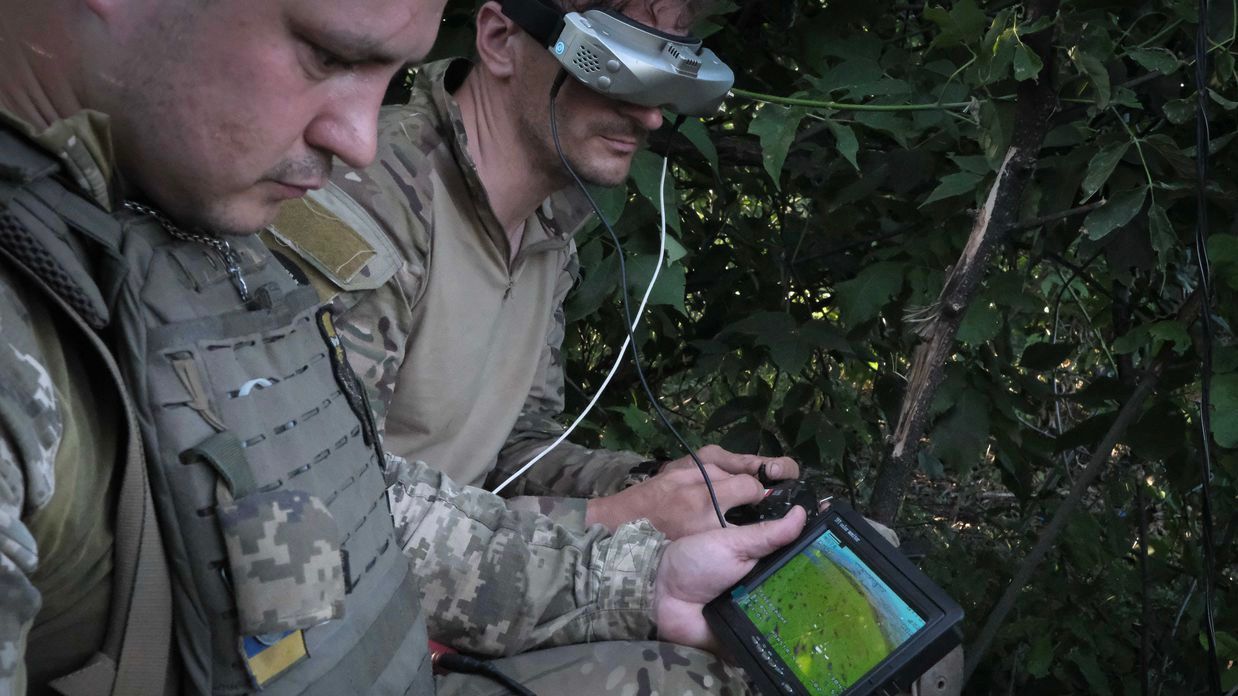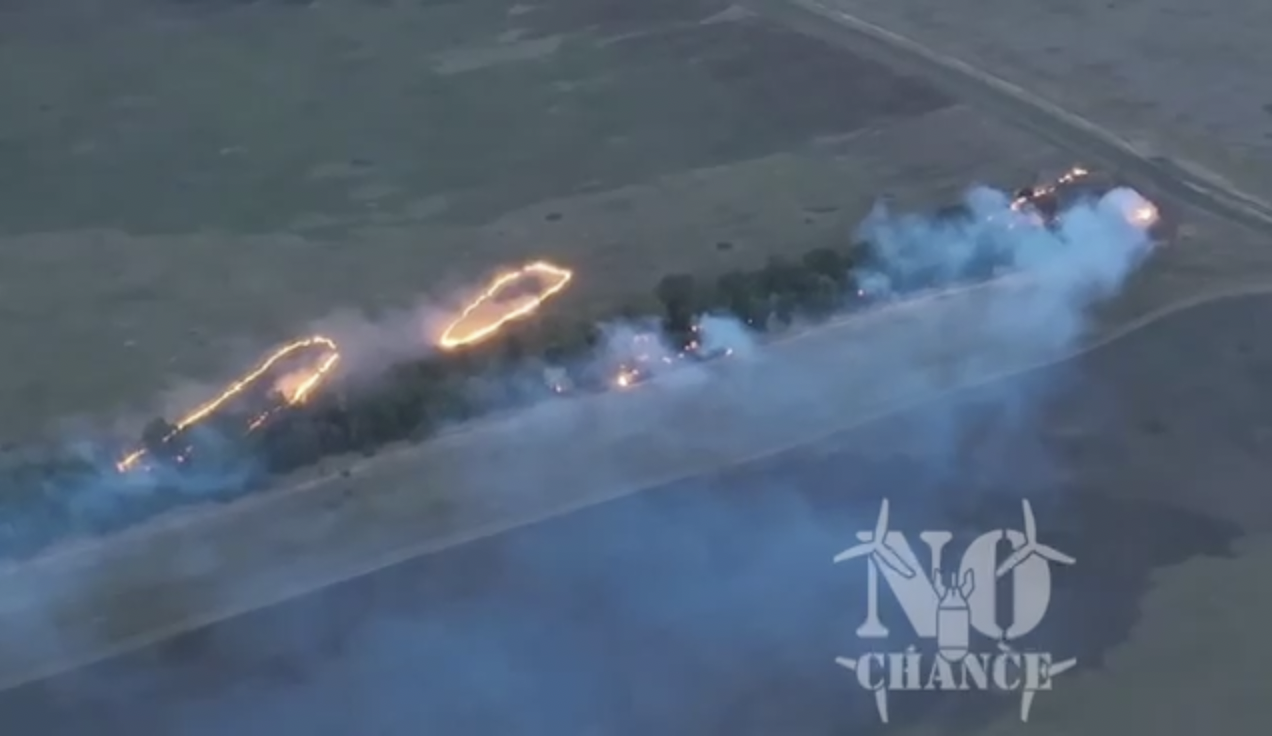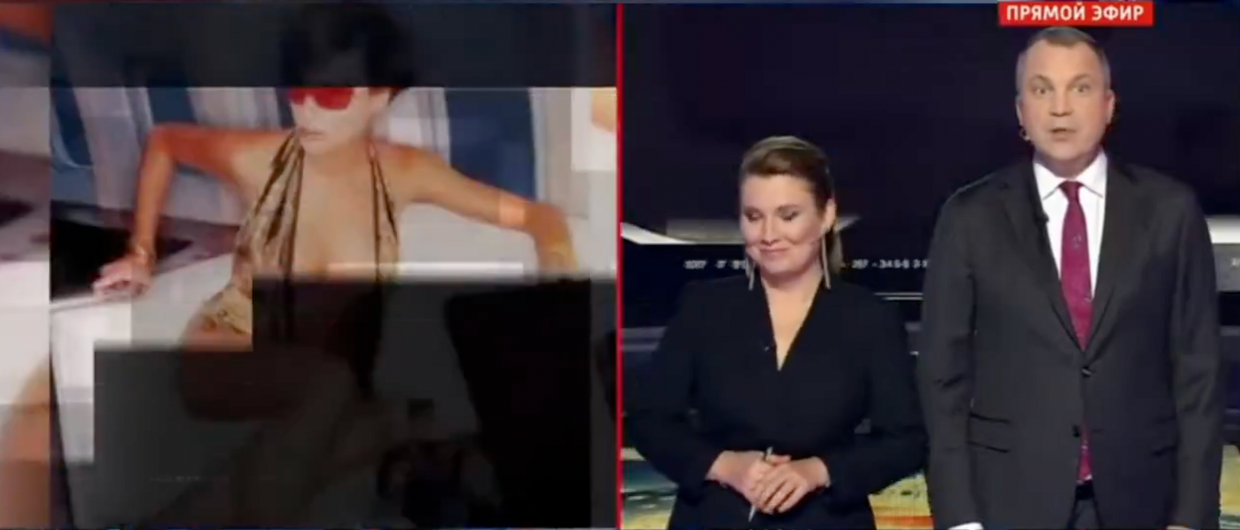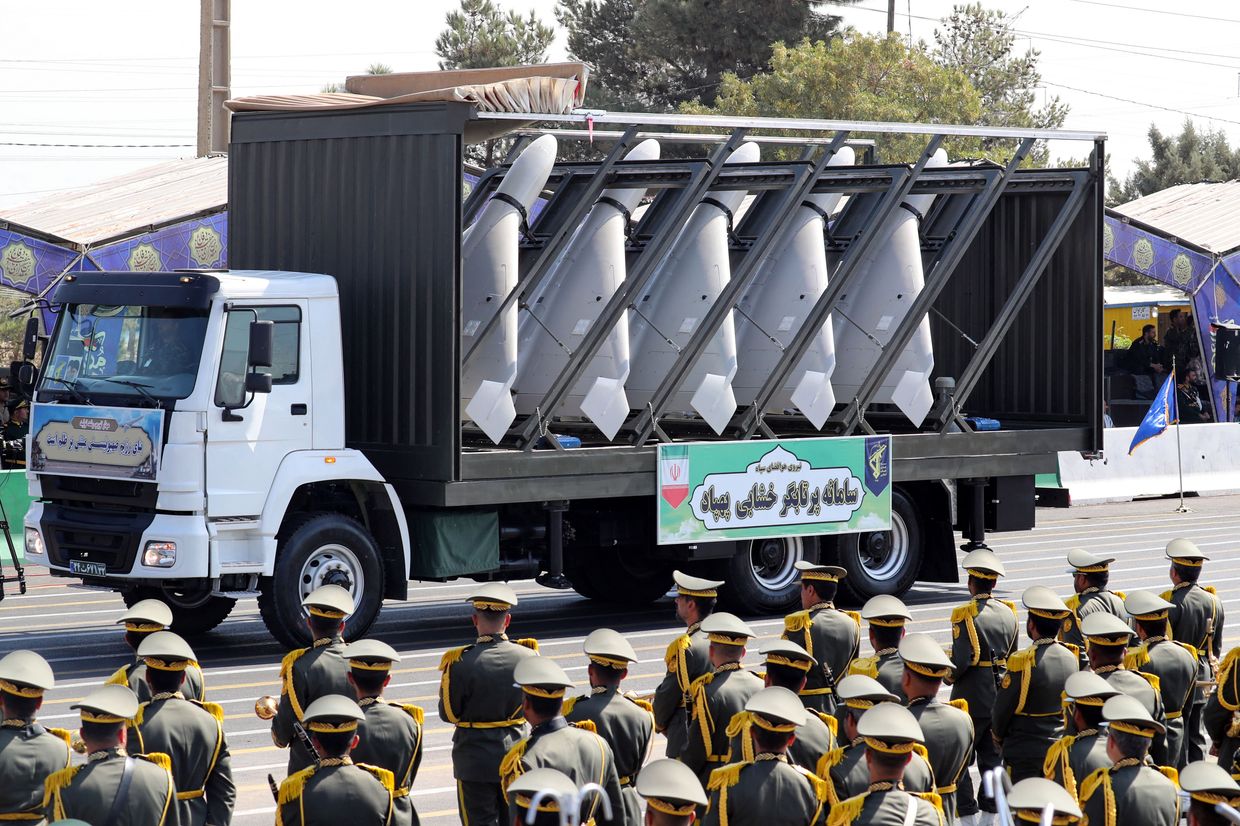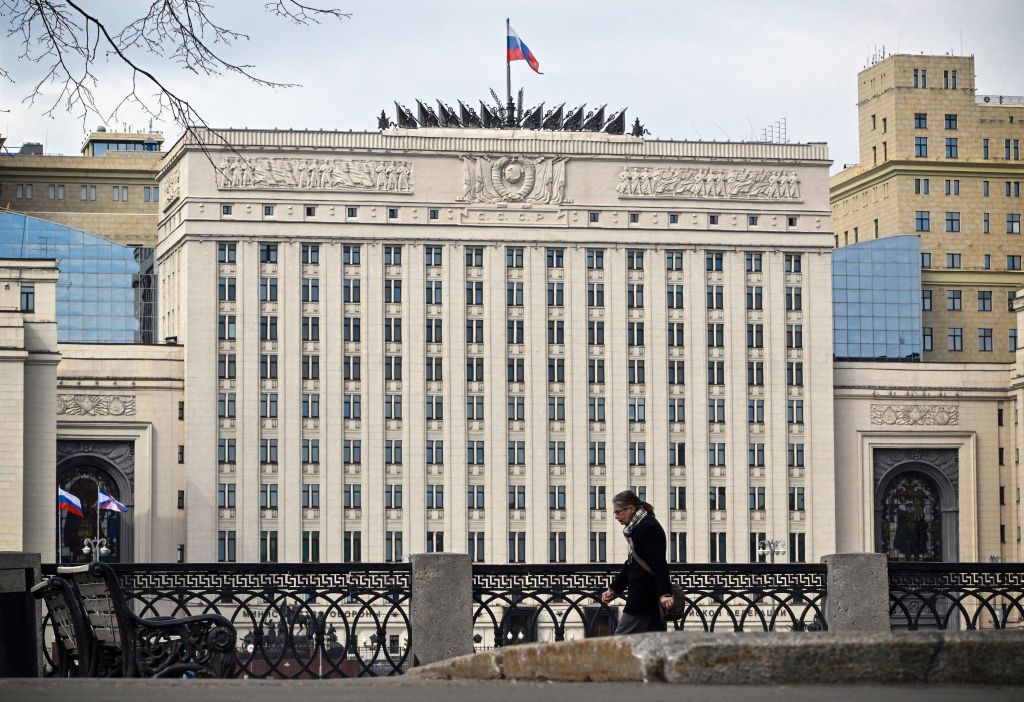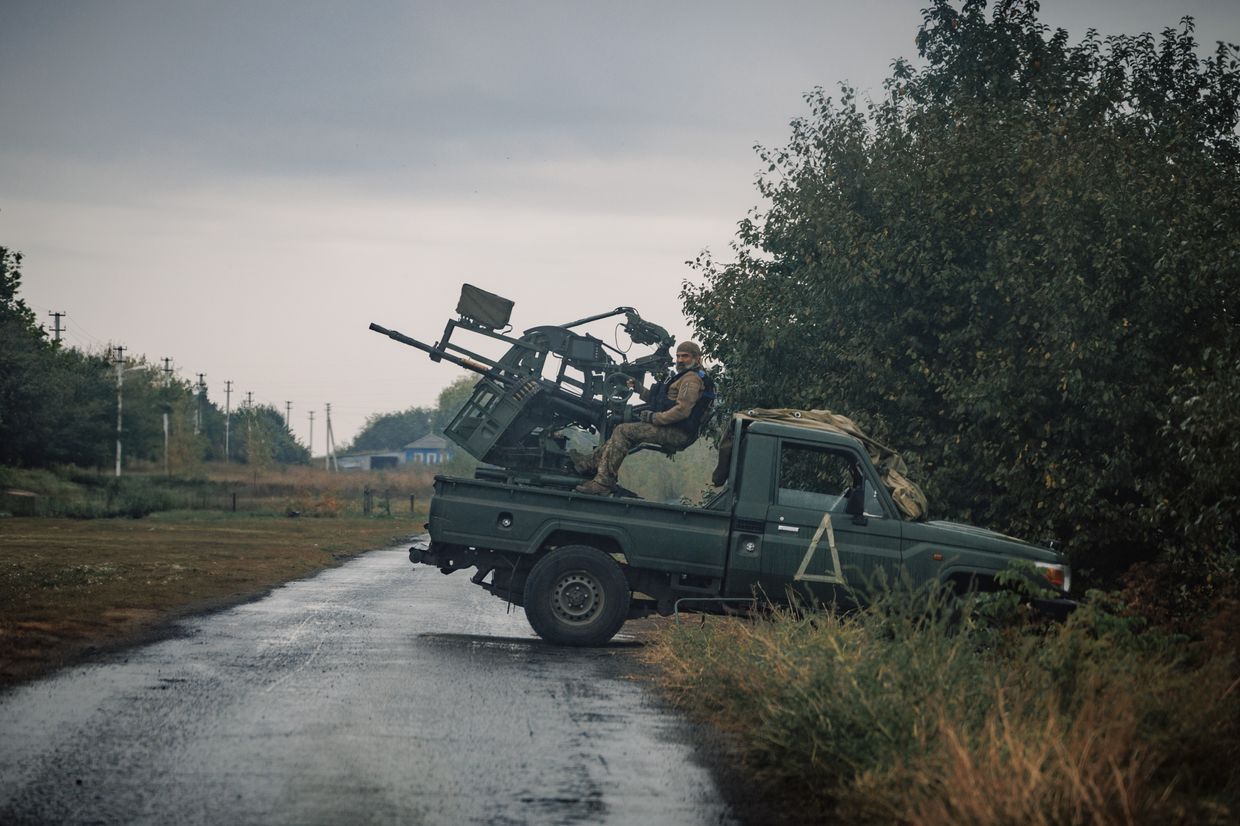Video footage emerged online on Sept. 2 showing what appeared to be a drone raining down fiery, white-hot metal on unseen soldiers hidden in a treeline.
The drone hovers, and slowly, methodically, 'breathes' a stream of fire, tentatively identified as molten thermite, up and down the hidden positions.
Both Russian and Ukrainian Telegram channels have claimed responsibility for the terrifying new drone innovation.
The Ukrainian military-focused media outlet Defense Express wrote that the drone had been deployed by Ukraine's 108th Territorial Defense Brigade, adding that the video was taken near the village of Ukrainske, Zaporizhzhia Oblast.
Other open-source intelligence outlets have repeated those claims, which the Kyiv Independent cannot verify.
Thermite weapons disperse thousands of tiny pieces of molten metal burning at temperatures that exceed 2,000 degrees Celsius, which means that it can melt through some armored vehicles.
Russia has deployed similar incendiary weapons, such as the banned white phosphorus bombs, from very early on in the full-scale war.
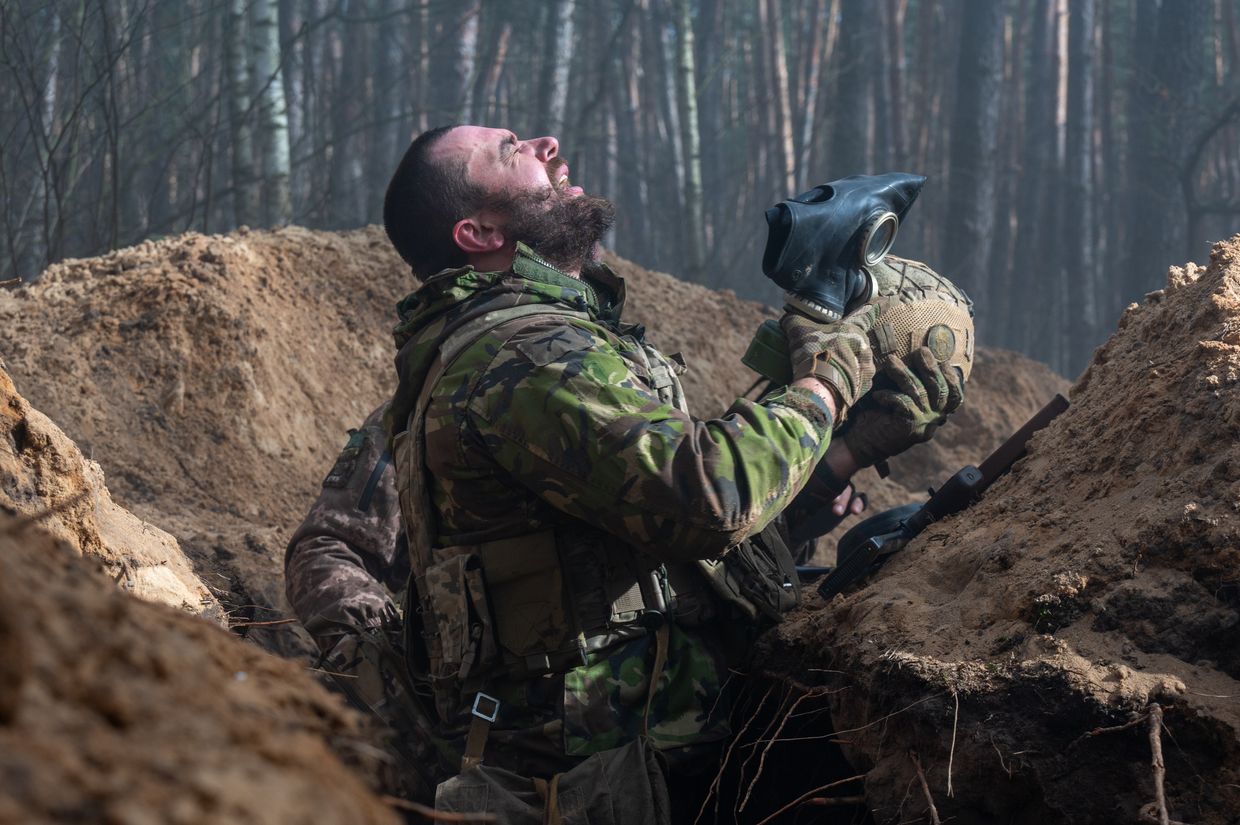
Ukraine has also reportedly used drones equipped with thermite munitions, which were dropped on Russian positions or armored vehicles.
Thermite and other incendiary weapons can cause devastating injuries.
Human Rights Watch writes that being exposed to such munitions can lead to "extensive and excruciating burns that require painful treatment" that include "respiratory damage from inflamed airways and toxic fumes, infection, extreme dehydration, and organ failure."
If one survives thermite and other incendiary munitions, they can "face a lifetime of suffering" — both physical and mental.
Ukraine's drone innovation
If confirmed, this would be the first time a Ukrainian drone has directly dropped a continuous stream of the molten metal in such a manner and would be yet another deadly military innovation.
Beyond melting through and potentially destroying lightly armored vehicles, the video shows that the thermite stream can set fire to trees or other cover for hidden positions.
Secondary detonations, possibly of ammunition or other weapons caches, are also visible in the video.
Another angle of the video that appears to be taken after the initial attack shows burning trees and smoldering ground.
While much of the fighting in the Donbas region has been marked by slow grinding battles, replete with trenches and endless artillery barrages, the use of drones by both sides has proved to be a pivotal aspect of the full-scale war.
Innovative drones, from the first-person-view (FPV) that can either drop a single munition or fly directly into a target, to Ukraine's naval drones that have wreaked havoc on Russia's Black Sea Fleet, are cost-effective methods of taking out much more expensive pieces of equipment.
But Russia has also vastly improved its own stock of drones since its clear disadvantage earlier in the full-scale war.
In particular, the highly effective and inexpensive Russian Lancet kamikaze drone has been responsible for dozens of confirmed strikes on Ukrainian equipment.
Earlier in 2024, Ukraine developed its own analog of the Lancet drone, which has already been deployed on the battlefield.
While the extent of the usage of the thermite-dropping drone is currently unknown, it is the latest step forward in the ongoing drone arms race.
